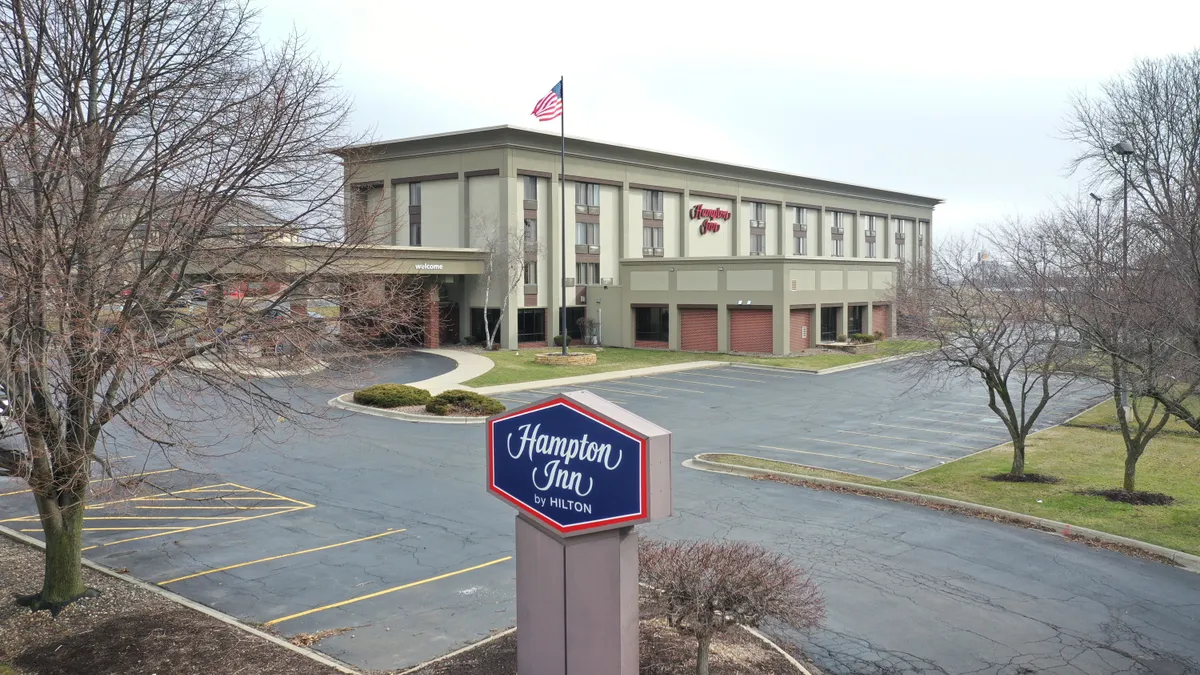Despite growing concerns that the Delta variant of the coronavirus will prompt another round of lockdowns, Hilton CFO Kevin Jacobs told Yahoo Finance the outlook for the embattled hospitality industry is reassuring.
“The story of our second quarter is one of sequential improvement, and the beginning of a sustained recovery in our business,” Jacobs said. “We improved in every region in the world, and we improved in every segment of our customer demand.”
The company reported strong second quarter earnings, with $128 million net revenue and a 234% increase in revenue per available room (revPAR) over the same period last year. The recovery has been leisure-driven, with business travel, while growing, lagging behind.
In July, Hilton’s occupied room nights are at or slightly higher than in 2019. “It's probably even better than it would have been normally because there's more capacity available for leisure travelers,” he said.
Going forward, Jacobs and Hilton CEO Christopher Nassetta “are not big believers in new normals.” Business and leisure travel alike will, within a few years, look the same or better than it did pre-pandemic. The chain is maintaining nearly 75% occupancy in U.S. locations.
“What we're hearing from our customers and our corporate clients is that everybody does intend to travel again,” he said. “How they travel may be slightly different, and the amount of time they spend in the office versus on the road may be slightly different, but we believe that business travel will fully recover.”
Labor shortage concerns
Strategically, the Delta variant’s primary obstacle for Hilton is the worker shortage, which has been a big problem in the industry. According to a June survey by job site Joblist, half of former hospitality workers who had been laid off during the pandemic don’t plan to return, and one in three said they plan to abandon the field for good because of low pay, poor benefits and a stressful workplace.
The scarcity of hospitality workers poses “a really big issue,” Jacobs said. “It’s hard to get workers right now, and that's not really unique to the hotel business. Specifically, in the service businesses, it's really hard to hire people.”
Most of the issues regarding the worker shortage are structural, Jacobs said, and “not necessarily short-term.”
“Whether that's federal unemployment insurance, or the fact that people are still concerned about the virus, or the fact that schools haven't [reopened], so people have childcare issues, a bunch of things are tightening the labor market dramatically, and it is hard to get workers in our business,” he said.
Jacobs pointed to a move by some hotel owners to purposely reduce occupancy and upcharge remaining room prices as a way to turn a larger profit, but Hilton is not doing that, the company says.
“We're obviously working awfully hard to deliver great service, and I think we are doing a very good job doing it with less labor,” Nassetta told analysts Thursday. “So, ironically, the demand margins are unbelievably high, because we're getting, effectively, rates consistent with what we had before, and we can't get the labor, so we just have less cost.”
Nonetheless, both Nassetta and Jacobs said the shortage is a “temporary thing,” which they expect will resolve itself roughly when the new school year begins.
“All the service industries and manufacturing and supply chain issues you're reading about every day [are] connected to not having enough labor,” Nassetta said. “Some of the government programs that were really important last year in the depths of this crisis aren't as important right now when there's a ton of opportunity for employment.”












